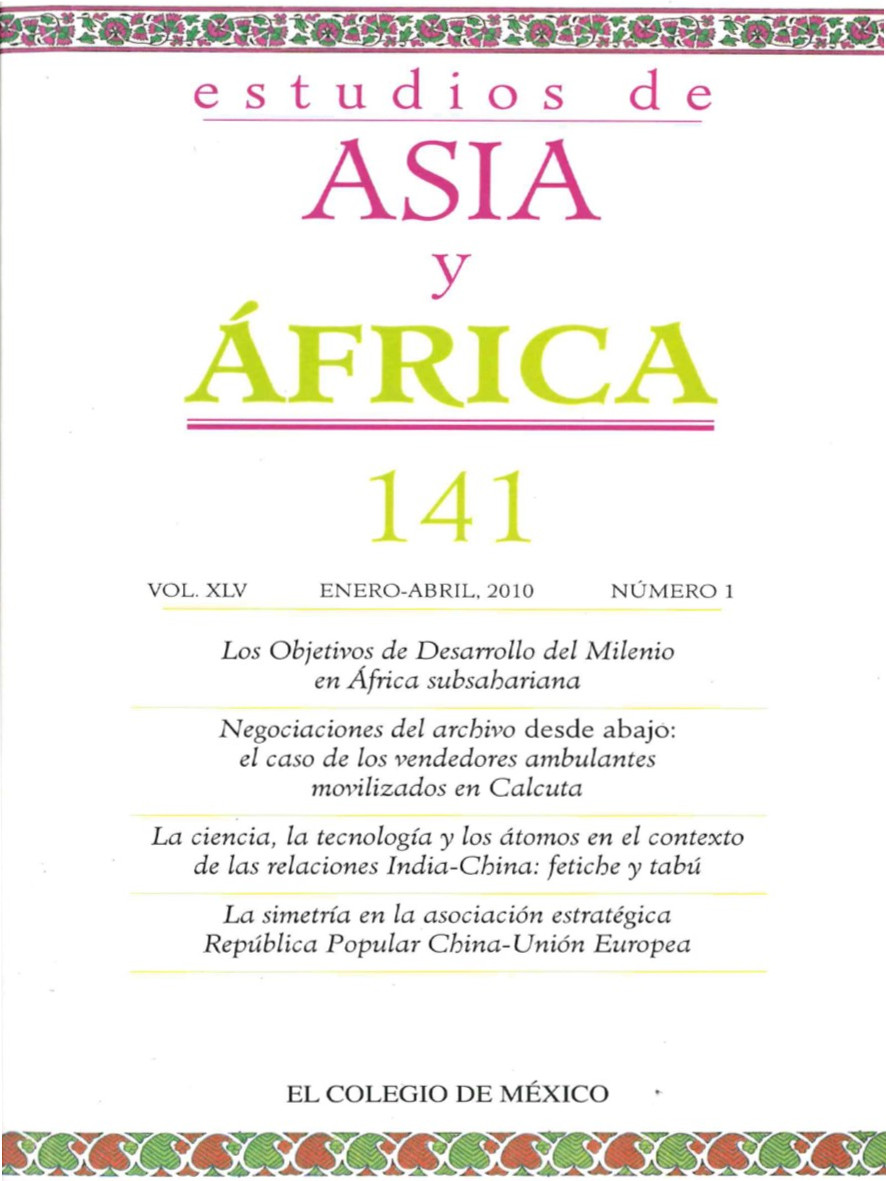Abstract
Science and technology acquired importance in India and China in the twentieth century as promoters of progress and national development, and as mechanisms for generating secular knowledge. This explains why nuclear energy came to represent the most evident expression of Western science and modernity in those societies. This article examines the processes through which this particular understanding of science and technology in India and China led to uncritical adoption and replication of imperial knowledge by local elites in the first half of the twentieth century. The foundation of scientific and educational institutions modelled on those of Europe generated geopolitical spaces for European knowledge. This in turn led to the creation of an international hierarchy of knowledge, in which pre-colonial non-European epistemological productions came to be viewed as inferior. By the time India gained independence and China emerged from the European colonial experience, local elites in both countries, anxious to catch up with ‘Western modernity’, turned to scientific and educational institutions with greater zeal to speed up ‘progress’ and national development.
References
Abraham, Itty, The Making of the Indian Atomic Bomb. Science, Secrecy and the Postcolonial State, Londres, Zed Books, 1998.
Anderson, Robert S., Building Scientific Institutions in India. Saha and Bhabha, Montreal, Centre for Developing-Area Studies, McGill University, 1975.
Arsovska, Liljana, “Introducción”, en Ailing Zhang, Amor en la ciudad en ruinas, México, El Colegio de México, 2007, pp. 9-21.
Banerjee, Ishita, Saurabh Dube y Walter D. Mignolo (coords.), Modernidades coloniales, México, El Colegio de México, 2004.
____________, “Reading time: texts and pasts in colonial Eastern India”, Studies in History, vol. 19, núm. 1, 2003, pp. 1-17.
Beijing Review, vol. 41, núms. 21, 22, 25 y 32, 1998.
Camilleri, Jospeh A., The State and Nuclear Power. Conflict and Control in the Western World, Sussex, Harvester Press Group, 1984.
Castro-Gómez, Santiago, “Latinoamericanismo, modernidad, globalización. Prolegómenos a una crítica poscolonial de la razón”, en Eduardo Mendieta y Santiago Castro-Gómez (eds.), Teorías sin disciplina (latinoamericanismo, poscolonialidad y globalizaciónen debate), México, Miguel Ángel Porrúa. [http://www.ensayistas.org/critica/teoria/castro/].
Chatterjee, Partha, The Nation and its Fragments. Colonial and Postcolonial Histories, Princeton, Princeton University Press, 1993.
Chen, Joseph T., “The May Fourth Movement redefined”, Modern Asia Studies, vol. 4, núm. 1, 1970, pp. 63-81.
Chow Tse-tsung, The May Fourth Movement, Stanford, Stanford University Press, 1967.
Deng Xiaoping, “Emancipate the mind, seek truth from the facts and unite as one in looking to the future”, diciembre 13, 1978.
____________, “Uphold the four cardinal principles”, marzo 30, 1979.
____________, “The present situation and the tasks before us”, enero 16, 1980.
Duara, Prasenjit (ed.), Decolonization. Perspectives from Now and Then, Londres, Routledge, 2004.
Evans, Harriet, Historia de China desde 1800, México, El Colegio de México, 1989.
Garver, John W., “The restoration of Sino-Indian comity following India’s nuclear tests”, The China Quarterly, núm. 168, diciembre de 2001, pp. 865-889.
Hansen, Thomas, The Saffron Wave. Democracy and Hindu Nationalism in Modern India, Princeton, Princeton University Press, 1999.
Hu Guangyao y Hu Xiaoming, “Nuclear tests threaten stability”, Beijing Review, vol. 41, núm. 22, junio 1-7, 1998, p. 7.
Jain, J. P., Nuclear India, Nueva Delhi, Radiant Publishers, vol. 2, 1974.
Jerath, Arati R., “Government flashes China card at the West”, The Indian Express, mayo 14, 1998.
Kumar, Deepak, “Reconstructing India: disunity in the science and technology for development discourse, 1900-1947”, Osiris, 2a. serie, vol. 15: Nature and Empire and the Colonial Enterprise, 2000, pp. 241-257.
Kwok, D. W. Y., Scientism in Chinese thought, 1900-1950, New Haven, Yale University Press, 1965.
Locke, John, Some thoughts concerning education, Nueva York, J. W. Schermerhorn, 1869.
Lok, Sabha, Lok Sabha Debates, sexta session, vol. 5.
Mao Tse-tung, Obras escogidas de Mao Tse-tung, vol. i, Pekín, Ediciones en Lenguas Extranjeras, 1968.
Mao Zedong, “Sixty points on working methods. A draft resolution from the Office of the Centre of the cpc, February 2, 1958”, Selected Works, 2008 [En línea].
Mehta, Uday, Liberalism and Empire: A Study in Nineteenth-Century British Liberal Thought, Chicago, University of Chicago Press, 1999.
Ministerio de Relaciones Exteriores de China, “China’s statement on India’s nuclear tests”, Beijing Review, vol. 41, núm. 22, junio 1-7, 1998, p. 7.
Needham, Joseph, Science and Civilisation in China, vol. 2, Cambridge, Cambridge University Press, 1991.
Nehru, Jawaharlal, Selected Works of Jawaharlal Nehru, vols. 1, 4 y 5, Nueva Delhi, Jawaharlal Nehru Memorial Fund, 1987.
Oficina de Información del Consejo de Estado de la República Popular China, Defensa nacional de China en el 2002, Beijing, Nueva Estrella, 2002.
____________, “Defensa nacional de China”, en Beijing Review, vol. 41, núm. 32, agosto 10-16, 1998.
Ram, N., Riding the Nuclear Tiger, Delhi, LeftWord Books, 2001.
Savarkar, Vinayak, Hindutva. Who is a Hindu?, Nueva Delhi, Bharati Sahitya Sadan, 1969.
Swami, Praveen, “Ahawkish line on China”, Frontline, vol. 15, núm. 11, mayo 23-junio 5, 1998. [En línea] http://www.flonnet.com/fl1511/15111050.htm [Consultado: 3 de septiembre de 1999].
Swamy, Subramanian, “Vajpayee’s China fiasco”, Frontline, vol. 15, núm. 22, octubre 24-noviembre 6, 1998 [En línea] http://www.hinduonnet.com/fline/fl1522/15220430.htm [Consultado el 3 de septiembre de 1999].
Perkovich, George, “What makes the Indian bomb tick?”, en D. R. Sardesai, Nuclear India in the Twenty-first Century, Nueva York, Palgrave, 2002a.
____________, India’s Nuclear Bomb, Berkeley, University of California Press, 1999b.
Teng, Ssu-yu y John Fairbank, China’s response to the West, Nueva York, Atheneum, 1963.
The Times of India, “Now, George says China is ‘potential threat no. 1”, The Times of India, marzo 13, 1998.
Wallerstein, Immanuel, Universalismo europeo. El discurso del poder, México, Siglo XXI, 2007.
____________, El moderno sistema mundial III. La segunda era de gran expansión de la economía-mundo capitalista, 1730-1850, México, Siglo XXI, 1998.
Wang Gungwu, “May Fourth and the GPCR: The Cultural Revolution remedy”, Pacific Affairs, vol. 52, núm. 4, invierno, 1979-1980, pp. 683-684.
Yuan Jing-dong, “India’s rise after Pokhran II: Chinese analysis and assessments”, Asian Survey, vol. XLI, núm. 6, noviembre-diciembre, 2001, pp. 978-1002.
This work is licensed under a Creative Commons Attribution-NonCommercial-NoDerivatives 4.0 International License
Copyright 2022 Estudios de Asia y África


